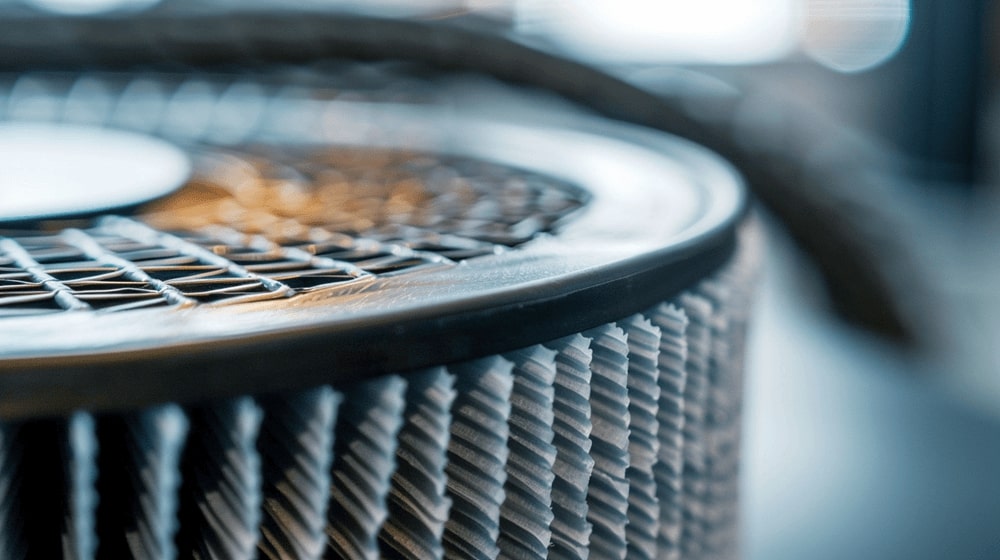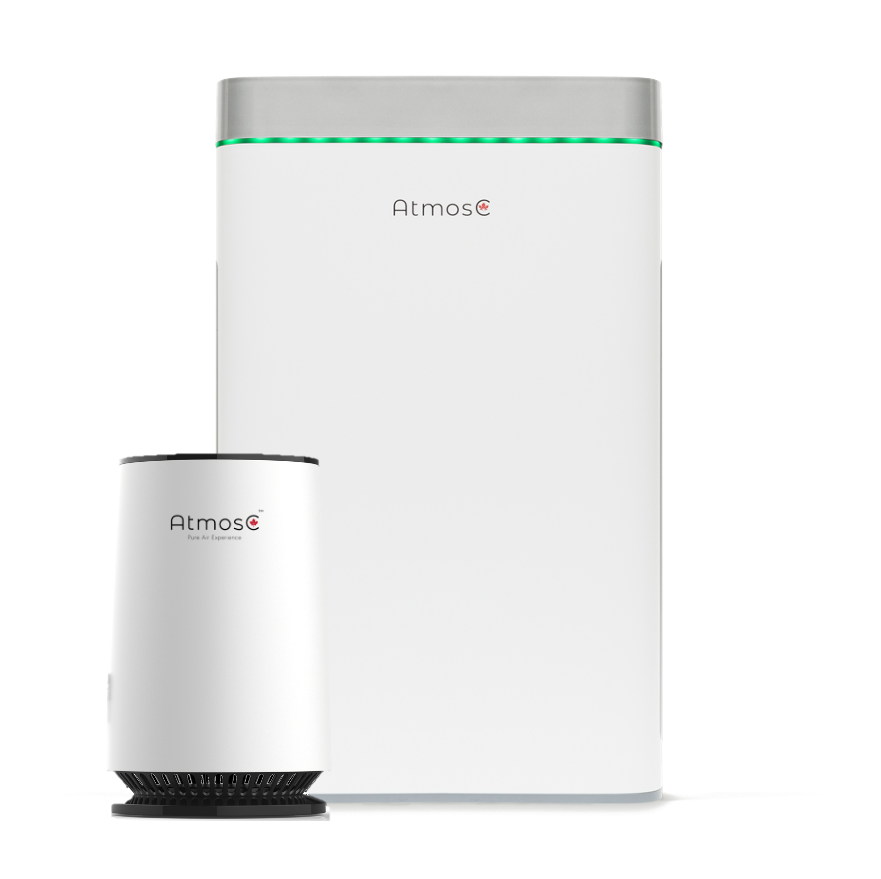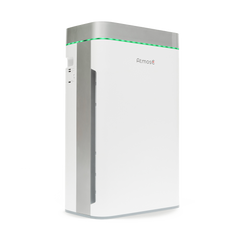Have you ever wondered "are air purifiers effective?" This question, which haunts the minds of many consumers, deserves a clear and precise answer. It is at the heart of the debate, so much so that researcher John Warner of St. Mary’s Hospital and Imperial College tested the Protexo according to an article from La Presse.
282 Europeans from six countries tried the device for an entire year. People who slept under the Protexo noticed a significant improvement in their quality of life and were less likely to be hospitalized due to an asthma attack. So, get ready to discover the truth about the effectiveness of air purifiers and the health benefits they can provide!
How can indoor air quality be impacted?
The air quality inside our homes can be affected by various environmental factors, according to Health Canada:
-
Ventilation: Insufficient ventilation can lead to an accumulation of indoor pollutants, which can have harmful consequences on health, especially in people with allergies, asthma, and other health issues.
-
Airborne particles and gases: Inhalable particles with a diameter of less than 10 microns and non-inhalable particles, which are made up of airborne allergens such as pollen.
-
Indoor pollution sources: tobacco smoke particles, cooking, excess moisture, water leaks, heating, renovations, household items, and furniture
-
External factors: Air quality issues can also be influenced by external air pollution (constructions, cars, etc).
While few studies have been conducted to assess the effectiveness of air purifiers, the 2015 IVAIRE project study found conclusive results on the subject. Indeed, it noted a 50% reduction in the concentration of formaldehyde over the 12 months following improved ventilation through the use of an air purifier.
What is the function of an air purifier?

An air purifier is a device designed to improve the air quality level inside, which is beneficial for people who suffer from asthma, seasonal allergies, symptoms, or other breathing problems. Portable air purifiers work by drawing in air and using air filters to capture contaminants. These contaminants are mainly pollutant particles captured as air passes through the device, attesting to the actual efficiency of the air filtration.
There are three types of air purifiers on the market:
- Mechanical purifiers use high-density filters to capture particles.
- Electronic air cleaners use an electric field to ionize particles, which are then captured by a negatively charged filter.
- Negative ionization purifiers ionize suspended particles, which then attach to positively charged surfaces in your home.
The HEPA (High Efficiency Particulate Air Filter) purifier is an excellent product that attests to the effectiveness of air purifiers. HEPA filters, built into a portable device, were designed for military purposes during the Second World War by the United States Atomic Energy Commission to trap radioactive dust particles.
What does science say about the actual efficiency of air purifiers against these pollutants?

The effectiveness of portable air purifiers is an important research subject which tends to find solutions to protect our health from allergens, fine particles, and volatile organic compounds. Along these lines, the Institut national de santé publique du Québec, an American working group made up of specialists in allergies and respiratory pathologies, found the following results:
- Simple mechanical purifiers are approximately 75% effective at removing large particles such as pollen.
- HEPA filters are 99.97% effective at removing very small particles measuring 0.3 microns, demonstrating an exceptional filtration rate.
- Electronic purifiers are nearly 100% effective for pollen and 80% for tobacco particles.
The advantages of air purifiers
Now that we have answered the question "are air purifiers effective?", we will see that these devices can also:
- reduce asthma and allergy symptoms
- improve sleep quality and breathing
- have positive effects on general health and well-being
To that end, the IVAIRE project study confirms the truth of this finding. According to these specialists, using this device reduced the proportion of children with a nighttime cough by 14.8% and the proportion of children visiting emergency rooms by 16%.
Are there risks related to using an air purifier?
According to Health Canada, here are the risks related to using this device, which should be taken into account:
- electrostatic precipitators produce ozone during operation
- ozone production tends to increase when the filters are poorly maintained
However, the concentrations found in homes are lower than recent standards. Health Canada recommends conducting rigorous maintenance by following the manufacturer’s instructions to maintain the effectiveness of the device.
How to select an effective air purifier
When selecting an effective air purifier, several factors should be taken into account.
The size and capacity of the device
Measure the dimensions of the room where you will use your air purifier and calculate the surface area in square feet. The capacity of these devices is calculated based on 8-foot ceilings. If your ceilings are higher, you will need an air purifier designed for larger rooms than yours.
Choosing between different purification technologies
Certain devices use high efficiency particulate air (HEPA) filters. Their operation depends on the air flow and the effectiveness of the filter type. Other devices also include an activated carbon filter or another absorbent filter that can eliminate gaseous pollutants, such as volatile organic compounds (VOCs).
Energy consumption and sound level
It is recommended to choose a device that makes little noise. In addition, clean or replace the filter as often as recommended by the manufacturer to maintain the effectiveness of the device.
AtmosC technology
AtmosC is an air purifier brand that offers high-quality products. Our reliable PFF-9 technology guarantees the capture and elimination of 99% of viruses, bacteria, and parasites. Discover our full range of products and make your space healthy and breathable!



